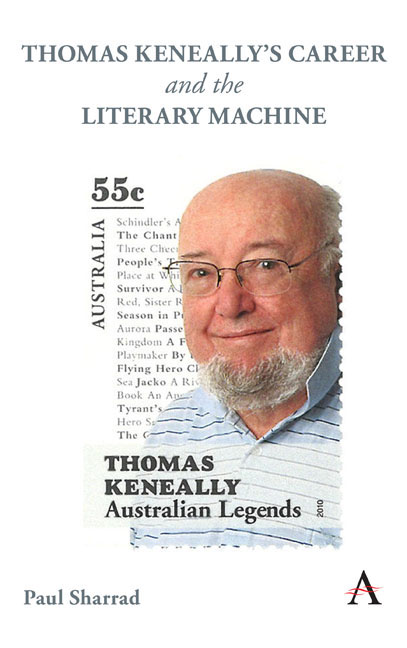Summary
This is a book about Thomas Keneally, frequently referred to as Australia's best-known writer, and officially as a Living National Treasure. More specifically, it is about his work: about the conditions under which his books have been produced, about how they have been received, about the author's sense of himself and the public's perception of him and his writing. In that regard, this is not a book about Thomas Keneally the person but is a study of his literary career.
I wanted to write about Keneally partly because I recall being both excited and irritated by his rhetorical style when reading Bring Larks and Heroes. I was then an undergraduate studying Australian literature at a time when academics and overseas readers would still regularly ask whether such a thing existed. My interest has been sustained by a discrepancy between Keneally's constant visibility in the media and the fact that most readers know only two or three of his thirty-plus titles. Among literary scholars there seems now to be a studied disregard of his work when once it was feted. Although the press will always give Keneally's newest book a background piece and a review, surveys of the most popular novelist or book run by the Australian Broadcasting Corporation and the national network of libraries have not included him in their rankings. Critic Geordie Williamson hailed the 2012 reissue of Bring Larks and Heroes in a series of Australian Classics, but placed its author among ‘our great novelists’ who have been ‘underestimated or discredited’.
Foreign and younger Australian readers will have difficulty appreciating the sensation that Keneally's breakthrough novel, Bring Larks and Heroes, caused in 1967. The treatment of ordinary suffering convicts as moral philosophers rather than brutes or romantic rebels, along with the presentation of a drab colonial outpost in poetic language, was unusual, imbuing simplistic tales of national origins with complexity, drama and metaphysical depth. To the extent that Keneally followed through in 1972 with The Chant of Jimmie Blacksmith, another fiction of national history, and a decade later with the international success of Schindler's Ark as novelized Holocaust history, his story is one of career success.
- Type
- Chapter
- Information
- Thomas Keneally's Career and the Literary Machine , pp. 1 - 14Publisher: Anthem PressPrint publication year: 2019



